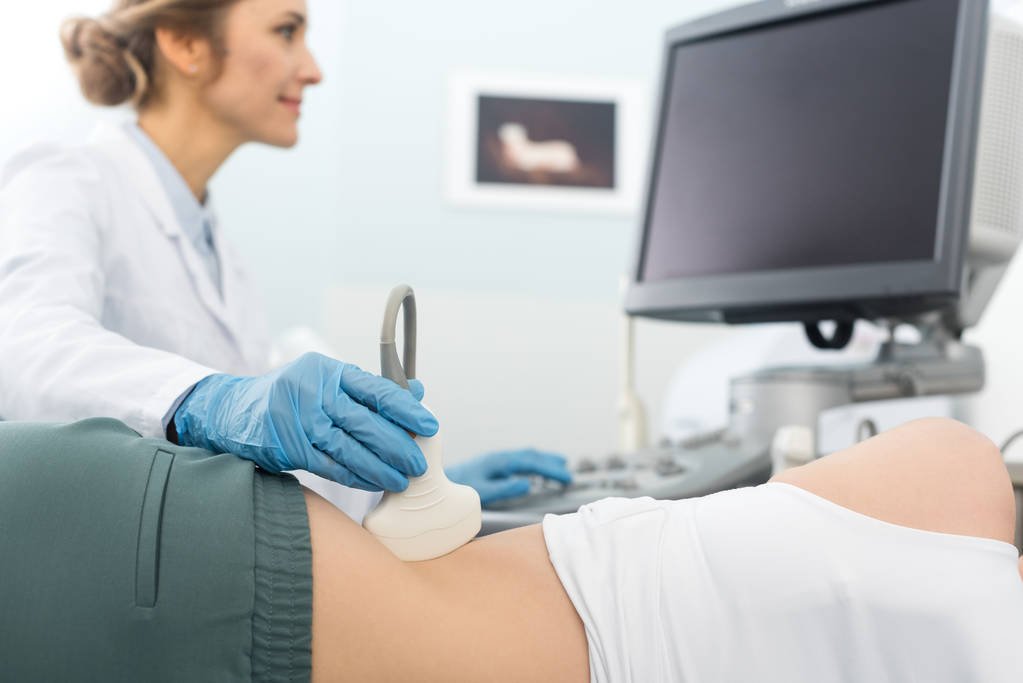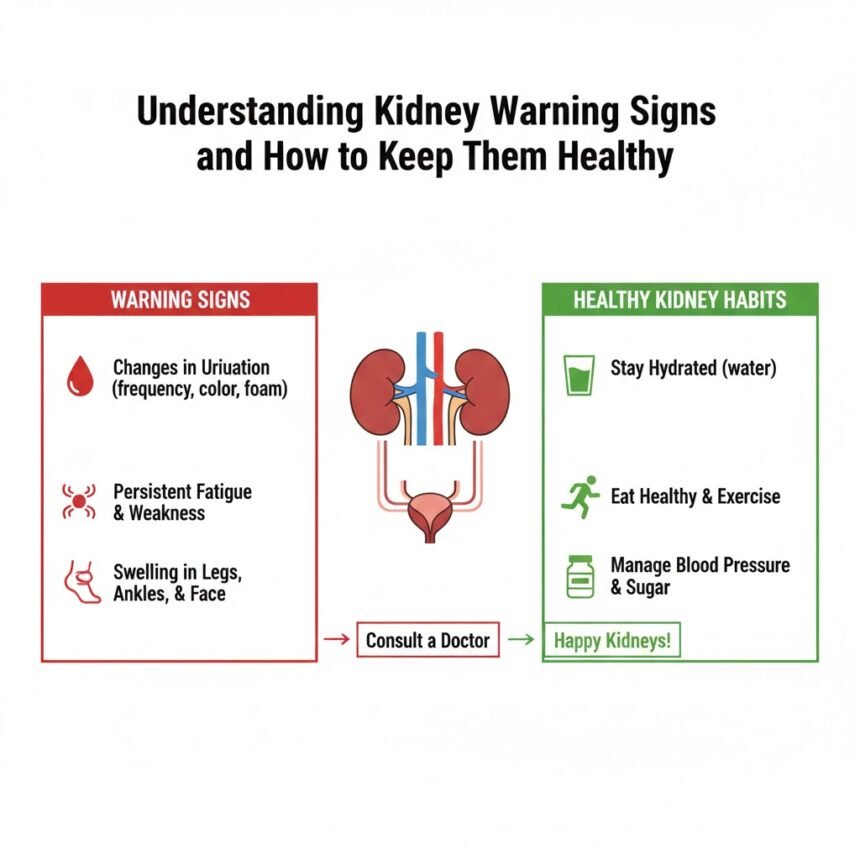Hello there. My name is Benjamin, and for the past 19 years, I have worked at Doctiplus, helping people understand how their bodies work. One of the most important parts I talk about is the kidneys. I want to share what I know with you.
Think of your kidneys as two hardworking filters inside your body. They are shaped like beans and are located in your back, just below your rib cage. They are part of your urinary system.
Their main job is to clean your blood. Every day, they work non-stop to remove waste and extra water from your body. This waste turns into urine. But that’s not all they do. Healthy kidneys are essential for your entire body to feel good.
What Do Healthy Kidneys Actually Do?

Most people know kidneys make urine, but their work is much more complex. As an expert who has seen thousands of patient reports, I can tell you they are multitasking masters.
| Kidney Function | What It Means in Simple Terms | Why It’s Important |
|---|---|---|
| Waste Removal | They act like a sieve, filtering out toxins and extra stuff your body doesn’t need from your blood. | Stops toxins from building up and making you very sick. |
| Fluid Balance | They decide how much water to keep in your body and how much to send out as urine. | Prevents you from feeling too puffy or too dehydrated. |
| Blood Pressure Control | They release a hormone that helps manage the pressure inside your blood vessels. | Keeps your blood pressure stable, which protects your heart and your kidneys themselves. |
| Red Blood Cell Production | They send a signal to your bone marrow, telling it to make new red blood cells. | These cells carry oxygen. Without enough, you feel very tired and weak. |
| Bone Health | They activate Vitamin D from sunlight and food, which helps your bones absorb calcium. | This keeps your bones strong and prevents them from becoming brittle. |
| Electrolyte Balance | They carefully manage the levels of minerals like sodium, potassium, and phosphate in your blood. | This keeps your nerves and muscles, including your heart, working correctly. |
When kidneys are damaged, they can’t do these jobs well. The problems often start very slowly, and you might not feel anything for a long time. That’s why knowing the early signs is so important.
10 Signs Your Kidneys Might Need Help
Based on my 19 years of experience, these are the signals I tell people to watch for. Your body has a way of telling you when something is wrong.
1. Changes in Your Urination
This is often the first and most obvious sign.
- You might need to go to the bathroom much more often, especially at night.
- Your urine may have bubbles or foam, which I’ve learned can mean there is protein leaking out.
- You might see blood in your urine, which can look pink or cola-colored.
- The feeling of pressure may change, and it can be hard to pass urine.
2. Swelling in Your Ankles, Feet, and Hands
When kidneys aren’t removing extra fluid and sodium well, this fluid stays in your body. It often pools in your ankles, feet, and hands because of gravity. I’ve had patients come in thinking they just ate too much salty food, only to find it was a key clue to their kidney health.
3. Feeling Extremely Tired and Weak
Healthy kidneys make a hormone called erythropoietin (I know, it’s a big word!), which tells your body to make red blood cells. If your kidneys are sick, they make less of this hormone.
This means your body makes fewer red blood cells, a condition called anemia. Your muscles and brain get tired very quickly because they aren’t getting enough oxygen.
4. Having Trouble Thinking Clearly
This is linked to the tiredness. When you are anemic and toxins are building up in your blood, your brain doesn’t get the clean, oxygen-rich blood it needs. You may feel dizzy, have trouble concentrating, or find it hard to remember things. I’ve spoken with many family members who noticed their loved one becoming confused, which was a major sign.
5. A Metallic Taste in Your Mouth or Bad Breath
When waste builds up in your blood, it can change how your food tastes and how your breath smells. It’s called uremic breath. Food, especially meat, can start to taste like metal. This often leads to not wanting to eat, which causes another problem—weight loss.
6. Nausea and Vomiting
A severe buildup of wastes in the blood can upset your stomach. This isn’t just a little upset stomach; it can be persistent nausea and vomiting. It’s your body’s way of trying to get rid of the toxins another way.
7. Shortness of Breath
This can happen for two reasons related to your kidneys:
- The extra fluid that isn’t being removed can build up in your lungs, making it hard to breathe.
- Anemia (a lack of red blood cells) means your body isn’t getting the oxygen it needs, leaving you breathless even after little effort.
8. Feeling Very Cold
When you have anemia, you might feel cold even in a warm room. People I’ve worked with often wear sweaters when others are comfortable in t-shirts. This is because you have fewer red blood cells carrying warmth and oxygen around your body.
9. Itchy and Dry Skin
Your kidneys do more than just filter; they also help keep the right balance of minerals in your blood. When that balance is off, it can make your skin feel dry and itchy all over. This isn’t a normal itch; it can feel deep under the skin.
10. Pain in Your Mid-Back
Some people feel pain in their back, just below the rib cage where the kidneys are located. This is not the same as a sore muscle from lifting something heavy. It can be a constant ache. Sometimes, this pain is also felt in the front, near the groin, especially if there is a kidney stone.
How to Keep Your Kidneys Healthy for a Long Time

Knowing the signs is crucial, but I believe preventing the problem is even better. After nearly two decades at Doctiplus, I’ve seen how simple, daily habits can make a world of difference. You don’t need complicated plans; you just need to be consistent.
1. Drink the Right Amount of Water
Water is like a shower for your kidneys. It helps them flush out the sodium and toxins.
- What I tell people: Drink enough so that your urine is light yellow or clear. If it’s dark yellow, you need more water.
- A personal note: I carry a water bottle with me all day. It’s a simple reminder to keep sipping.
2. Eat a Balanced, Low-Sodium Diet
Too much salt makes your kidneys hold onto water, which raises your blood pressure and makes them work harder.
- What to do: Try to eat fresh foods like fruits and vegetables. Be careful with processed foods, canned soups, and fast food, as they are often very high in sodium.
- Expert tip: Use herbs and spices like garlic, pepper, and lemon juice to flavor your food instead of salt.
3. Keep Your Blood Pressure in a Healthy Range
High blood pressure is like a silent bully for your kidneys. It damages the tiny, delicate blood vessels inside the filters.
- What to do: Have your blood pressure checked regularly. If your doctor says it’s high, follow their advice on diet, exercise, and medication.
4. If You Have Diabetes, Manage Your Blood Sugar
High levels of sugar in your blood can overwork and damage the kidney’s filters over many years. This is one of the most common causes of kidney problems I see.
- What to do: Work closely with your doctor to keep your blood sugar levels within your target range.
5. Avoid Smoking and Limit Alcohol
Smoking directly damages the blood vessels, including those in your kidneys, slowing blood flow. Alcohol can dehydrate you and raise your blood pressure.
- What I tell people: Quitting smoking is one of the best things you can do for your overall health. With alcohol, less is always better for your kidneys.
6. Use Pain Medications Carefully
Common over-the-counter pain relievers can harm your kidneys if you take them too often or in high doses.
- Expert advice: Always follow the instructions on the bottle. If you need to take them regularly for chronic pain, talk to your doctor about safer options for your kidneys.
7. Get Regular Check-ups
If you have high blood pressure, diabetes, or a family history of kidney disease, it’s very important to have simple tests done.
- What this means: A routine blood test and a urine test can tell your doctor how well your kidneys are filtering and if there is any protein leaking out. Catching a problem early is the key.
Our kidneys are incredible organs that work quietly in the background. By listening to the signals your body sends you and taking these simple steps to care for them, you can help ensure they keep you healthy for years to come. If you notice any of the signs I mentioned, please make an appointment to talk to a doctor. It’s always better to be sure.
What are the five stages of kidney disease?
We don’t often use the term “end-stage renal disease” right away with patients. It can sound frightening. Instead, we talk about the progression of kidney disease through five stages. We figure out the stage based on a simple blood test result called your eGFR, or estimated glomerular filtration rate.
Think of your eGFR as a percentage score for how well your kidneys’ filters are working. A score above 90 is excellent, like getting an ‘A’. A score of 0 means the filters have stopped working completely.
Here’s how we break down the stages:
- Stage 1: Your eGFR is 90 or higher. At this point, your kidneys have some minor signs of damage, like a small amount of protein in your urine, but they are still working very well. Many people feel perfectly fine.
- Stage 2: Your eGFR is between 60 and 89. The damage is a bit more noticeable, but your kidneys are still functioning within a good range. You likely won’t feel any different.
- Stage 3: Your eGFR is between 30 and 59. This is when we see a mild to moderate loss of function. This is a crucial stage where we really focus on lifestyle and medication to slow things down. Some people might start to feel a little more tired here.
- Stage 4: Your eGFR is between 15 and 29. The loss of kidney function is now severe. This is when we start having more serious conversations about future plans, like dialysis or a transplant.
- Stage 5: Your eGFR drops below 15. This is what we call kidney failure. The kidneys are very close to, or have completely, stopped working. This is when the symptoms I listed earlier usually become hard to ignore.
What are the first warning signs of kidney failure?
This is a question I hear all the time. The tricky part is that in the early stages, there are often no clear warning signs at all. Your kidneys are incredibly good at compensating. I’ve seen patients with significant damage who still feel okay, which is why routine testing is so important.
When the function drops enough, usually in the later stages, the symptoms start to show up. They can creep in slowly, and people often mistake them for just being busy or stressed. Based on what my patients tell me, the most common signs are:
- Feeling extremely tired, no matter how much you rest.
- Feeling sick to your stomach or actually vomiting.
- Finding it hard to focus or feeling confused.
- Noticing swelling in your ankles, feet, or around your eyes.
- Seeing a big change in how often you need to urinate.
- Getting muscle cramps, especially in your legs.
- Having skin that feels very dry and is constantly itchy.
- Losing your appetite, or noticing that food has a metallic taste.
What usually causes kidneys to fail?
In my 19 years, I’ve seen that two conditions are behind most cases of chronic kidney failure: diabetes and high blood pressure.
Think of it this way: consistently high blood sugar from diabetes is like pouring a syrupy liquid through your kidneys’ delicate filters. Over years, that syrup gums up the works and damages them. High blood pressure, on the other hand, is like running water through a garden hose with too much pressure. Eventually, the hose walls get weak and damaged.
Other causes I’ve encountered include:
- Polycystic Kidney Disease (PKD): This is an inherited condition where cysts filled with fluid grow in the kidneys, making it hard for them to work.
- Glomerular Diseases: These are conditions that attack the kidney’s filtering units directly.
- Autoimmune Diseases: Like Lupus, where the body’s own defense system mistakenly attacks the kidneys.
Sometimes, kidney failure can happen very suddenly, which we call acute kidney injury. This is often temporary and can be caused by a severe infection, heavy dehydration, a blockage in the urinary tract, or a reaction to certain medications.
Who is most at risk for kidney failure?
While kidney failure can happen to anyone, some people have a higher chance of developing it. You might be at a higher risk if you:
- Have diabetes.
- Have high blood pressure.
- Have heart disease.
- Have a family member with kidney disease.
- Are over 60 years old.
- Are of Black ethnicity.
- Have taken certain pain medications, like NSAIDs (e.g., ibuprofen, naproxen), regularly for a long time.
What are the complications of kidney failure?
When the kidneys fail, it affects your whole body. The complications we watch for are serious, but we have ways to manage them. They include:
- Worsening high blood pressure, creating a difficult cycle.
- Anemia, or a low red blood cell count, which causes severe fatigue.
- Weak bones, because the kidneys struggle to manage calcium and Vitamin D.
- Fluid building up in the lungs, making it hard to breathe.
- Nerve damage, which can cause tingling or numbness.
- Electrolyte imbalances, which can affect your heart rhythm.
It’s important to know that a kidney failure diagnosis is not an immediate death sentence. With the right treatment plan, people can live for many years. The goal is to manage the condition and its complications to keep you feeling as well as possible.
How do we diagnose kidney failure?
Diagnosing kidney problems is straightforward. We use a combination of tests that give us a clear picture:
- Blood Tests: This is where we get your eGFR number, which tells us about your filtering function. We also check for waste products like creatinine.
- Urine Tests: We check your urine for protein or blood that shouldn’t be there. This is one of the earliest signs of damage.
- Imaging Tests: Sometimes, we do an ultrasound to get a picture of your kidneys. This helps us see if there are any blockages or changes in size and shape.
How is kidney failure treated?
While we can’t cure kidney failure, we have very effective ways to treat it and help people live full lives. The treatment depends on the stage and cause.
In the earlier stages, the focus is on slowing the progression. This involves:
- Strict control of blood pressure and blood sugar.
- Specific medications to protect the kidneys.
- Dietary changes, like limiting salt and certain minerals.
For Stage 5 kidney failure, the two main treatments are:
- Dialysis: This is a treatment that does the job of the kidneys by cleaning the blood. There are two types. Hemodialysis is done at a clinic using a machine, usually a few times a week. Peritoneal dialysis can often be done at home and uses the lining of your own abdomen to filter the blood.
- Kidney Transplant: This is a surgery to give you a healthy kidney from a donor. It’s a major operation, but a successful transplant can offer the best quality of life.
We also use different medications to manage the complications, such as pills for anemia, to strengthen bones, and to remove extra phosphorus from your body.
The most important thing I tell my patients is that they are a key part of their own care team. By following your treatment plan, asking questions, and coming to your appointments, you are taking control of your health.
FAQs About Kidney Health
Q1: How much water should I drink every day to keep my kidneys healthy?
Answer: This is one of the most common questions I get. The old “eight glasses a day” rule is a good starting point, but it’s not perfect for everyone. I tell people to listen to their bodies. A good guide is to drink enough water so that your urine is a light, pale yellow color. If it’s dark yellow, you likely need to drink more. Your activity level, the climate you live in, and your overall health all play a role. If you have a history of kidney stones, I often recommend drinking even more to help prevent new stones from forming.
Q2: Can back pain really be a sign of a kidney problem?
Answer: Yes, it can, but it’s important to know the difference. The back pain from a kidney issue is usually deeper and higher up, just below your rib cage on one or both sides. It often doesn’t go away when you shift position or rest, like a muscle ache might. It can also be accompanied by other signs I mentioned, like fever, changes in urine, or nausea. If you have back pain with any of those symptoms, it’s a good idea to see a doctor to rule out a kidney infection or stones.
Q3: I have foamy urine. Should I be worried?
Answer: A few bubbles are normal. But if you consistently see foam that looks like the head on a beer and doesn’t go away after a flush, it can be a sign of protein in the urine, which we call proteinuria. Healthy kidneys keep important protein in your blood. When the filters are damaged, protein can leak out. If you notice persistent foamy urine, I would suggest you mention it to your doctor. A simple urine test can check for protein and give you peace of mind or catch an issue early.
Q4: Are kidney diseases hereditary?
Answer: Some types can be. Polycystic Kidney Disease is a well-known example that runs in families. If you have a close family member—like a parent, sibling, or child—with kidney disease, your risk is higher. This doesn’t mean you will get it, but it does mean you should be more proactive. I advise people with a family history to have regular check-ups that include blood pressure checks and simple blood and urine tests for kidney function.
Q5: Is there a special diet for kidney health?
Answer: There isn’t one single “kidney diet,” but there are key eating habits I recommend. The most important one is to limit sodium, which helps control blood pressure. Eating more fresh fruits, vegetables, and whole grains is also beneficial. For people who already have significant kidney damage, we need to be more careful about limiting certain minerals like potassium and phosphorus, and sometimes protein. But for a generally healthy person, focusing on a low-sodium, balanced diet is the best approach.
Q6: Can over-the-counter painkillers hurt my kidneys?
Answer: Yes, they can, especially if used frequently over a long period. Medications like ibuprofen and naproxen can reduce blood flow to the kidneys. For most people, taking them once in a while for a headache is fine. But if you find you need them often for chronic pain, like arthritis, it’s very important to talk to your doctor. We can help you find a pain management plan that is safer for your kidneys.
Q7: What is the connection between diabetes and kidney disease?
Answer: This is a very strong connection that I see every day. High blood sugar from diabetes acts like a poison to the tiny blood vessels in the kidney’s filters. Over many years, this sugar damages these vessels, making them leaky and less effective at cleaning the blood. This is why it’s so critical for anyone with diabetes to keep their blood sugar levels well-controlled. It is the best defense against developing kidney disease.
Q8: Can kidney damage be reversed?
Answer: It depends on the type and stage of the damage. In the very early stages, if we can treat the cause—like getting high blood pressure under strict control—we can often prevent the damage from getting worse and sometimes even improve function slightly. However, once a significant number of the filtering units are scarred and destroyed, that damage is usually permanent. This is exactly why early detection is so vital. We want to catch and treat the problem when there is still a chance to preserve function.
Q9: How does high blood pressure affect the kidneys?
Answer: Think of it like this: your kidneys are filled with a delicate network of tiny blood vessels. High blood pressure is like forcing a powerful stream of water through a gentle hose. Over time, the force damages and scars these vessels. Once they are scarred, the filters can’t do their job, which can make the blood pressure rise even more, creating a dangerous cycle. Controlling your blood pressure is one of the most direct ways to protect your kidneys.
Q10: Are there any symptoms in the early stages of kidney disease?
Answer: This is the tricky part. In the early stages, there are often no clear symptoms at all. The kidneys are so good at their job that they can compensate for a lot of damage before they start to show signs of failure. This is why kidney disease is sometimes called a “silent” condition. The symptoms I listed in the article, like fatigue, swelling, and changes in urination, often don’t appear until the disease is more advanced. This is why knowing your risk factors and getting routine tests are so important.

